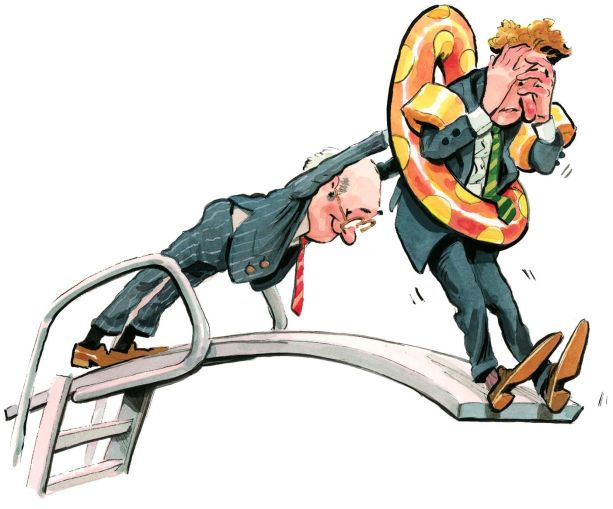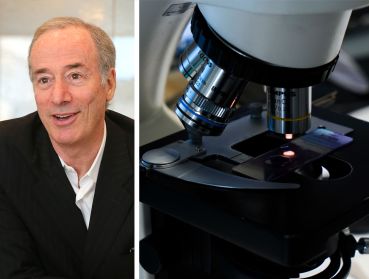Shepherding the Next Generation of Financiers Through This Crisis
An elongated cycle produced many young real estate professionals who’ve never experienced a downturn. How are different lending shops shepherding their youngsters?
By Mack Burke July 14, 2020 9:00 am
reprints
Every honoree on this year’s Power Finance list would agree that some of the best learning experiences and growth opportunities come in times of stress. Many of today’s biggest power finance players started their careers around the time of the Great Financial Crisis — like NKF’s Dustin Stolly — or can trace their roots back to the Savings & Loan Crisis and the “Resolution Trust Company-era” — like Brookfield (BN)’s Andrea Balkan — where they were given front-row seats to distressed situations and cut their teeth handling waves of loan workouts, restructurings, resolutions, foreclosures and bankruptcies.
These phenomena bred waves of disciplined bankers, alternative lenders and advisors keen to not incite an encore.
Mesa West Capital co-founder and principal Jeff Friedman said if “you haven’t seen first hand the impacts of headwinds, you tend to be more cavalier in terms of underwriting.”
“We’re always thinking about grooming the next generation of leaders,” said Nuveen Real Estate’s global head of debt, Jack Gay. “The downturn in the early 1990s was nasty, long and drawn out. I cut my teeth in bankruptcies and foreclosures, and the base of knowledge that gives you [is amazing].”
Young professionals can be the lifeblood of a bank or finance company, large or small.
If they entered the industry in the last decade, they’ve seen nothing but tailwinds and an ever-evolving up market proliferating an astounding influx of new finance companies, and thus, more jobs. Asset management and general triaging hasn’t been added to the utility belts of many young financiers — let alone doing it remotely.
“I’ve been in [the industry] a long time and have never experienced this — and having to do it from home! We have to make sure they do everything they can to learn from this,” said Fannie Mae (FNMA)’s senior vice president and COO of multifamily, Michele Evans. “[Commercial real estate] is cyclical, and you need to be able to manage through good and bad times. It makes you a better professional. Don’t lose sight of what you’re going to learn now.”
Kara McShane, Wells Fargo (WFC)’s head of commercial real estate, said a “crisis is a good time to learn. You learn more when things go wrong. We have to stay engaged, and our whole leadership team continues to reach out through the ranks and make sure people are talking.”
COVID-19’s attack on the U.S. economy instantly rocked the commercial real estate sector, something no rookie or veteran real estate professional would have imagined. It accelerated many late-cycle trends and shifted the market’s balance of power to the lender’s side.
Yet again, the spotlight is on them, and now, they’re paying it forward.
“If anything positive can be said, it’s a silver lining for mentorship,” said Anthony Wong, the head of U.S. commercial real estate lending at Bank of China (BACHF). “Many colleagues in the group have not experienced what it’s like to lend in a downcycle.
“What we’re seeing here will make us better credit people and asset managers because what’s going on now is unprecedented, and we’re going to come out stronger,” Wong added. “Our lending muscles are more powerful because we’ve handled this experience.”
Friedman said, “from a learning and growing perspective, it’s a great time [to experience] what the commercial real estate market looks like with downside.”
Mark Zytko, a partner of Friedman’s as a co-founder and principal at Mesa West, which was founded in 2004 ahead of the GFC as one of the first true private debt funds said: “Our philosophy is when things go well, the borrower has the upside and we collect our coupon, but if things don’t go well, we still get our money back. The fact that [now] you’re considering the downside when making a loan is educational.”
Once the pandemic hit, many shops were forced to reallocate staff from origination practices to asset management duties. That meant that in some cases, many young people were pushed into the deep end.
“We’ve set [some young people up] in workout and forbearance negotiations, and we take a senior person and strap them with a junior person so they can work hand in hand,” Nuveen’s Gay said. “They’ll be better underwriters and people by it.”
Nuveen has a $35 billion global allocation to debt, and Jason Hernandez, the firm’s head of originations, said he took the most experienced professionals on his team and “shifted the focus to half looking at new deals and the other half looking at the existing book, helping with forbearance agreements and workouts. The culture is very open and collegial; it was easy to shift resources around.”
Hernandez aligns his message to his team to being a quarterback and how one should respond while a collection of 300-pound men are rushing at you: “We try to be cool and calm in the pocket.”
He added: “We don’t have to transact. When you’re in the middle of this, it’s hard to make a decision today when on the ground. One, we don’t have to transact, but if we do, we better have conviction.”
And that seems to be a key theme in this crisis: discipline and conviction.
Amid everything, instilling this in the minds of tomorrow’s Power Finance players is one of today’s most important tasks.


